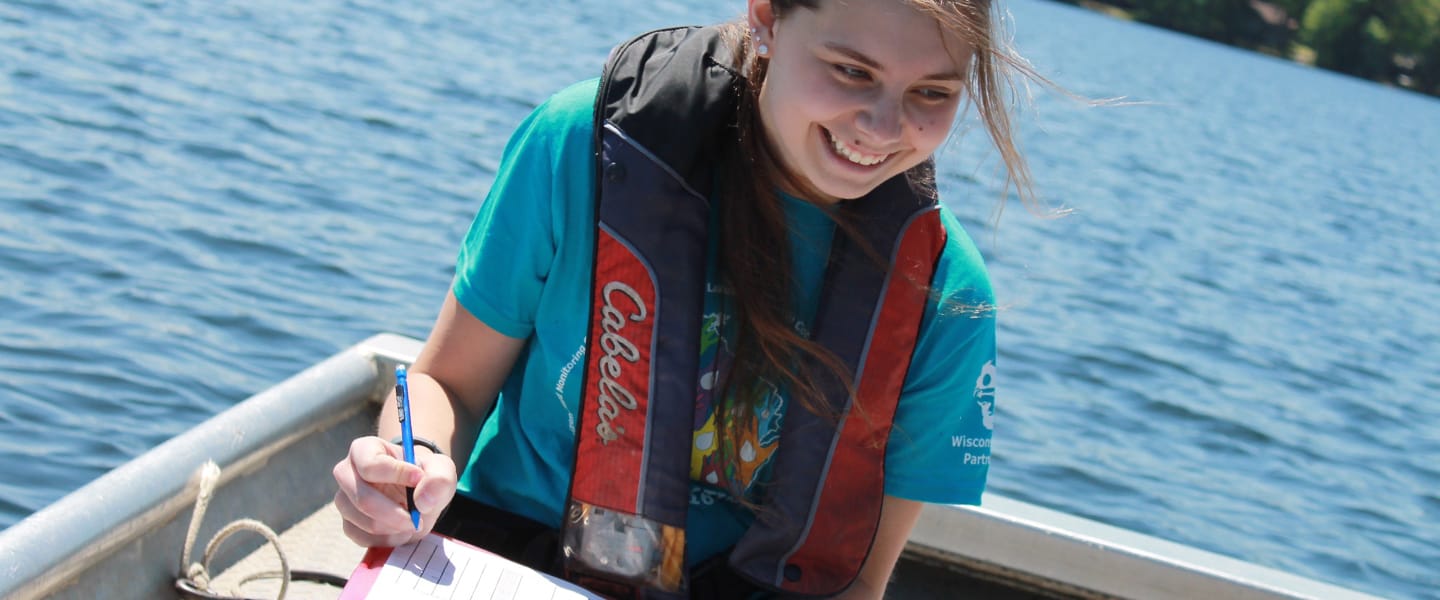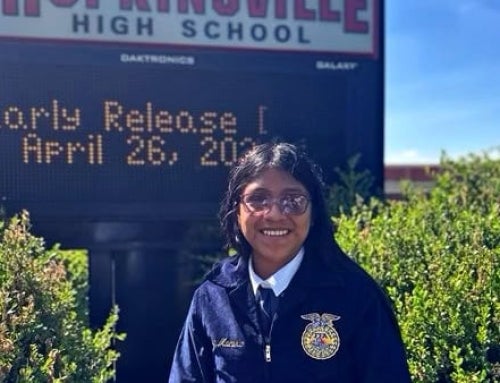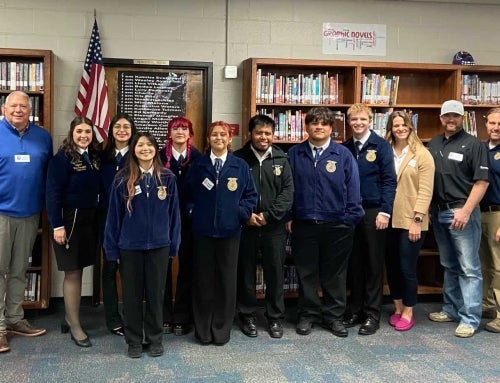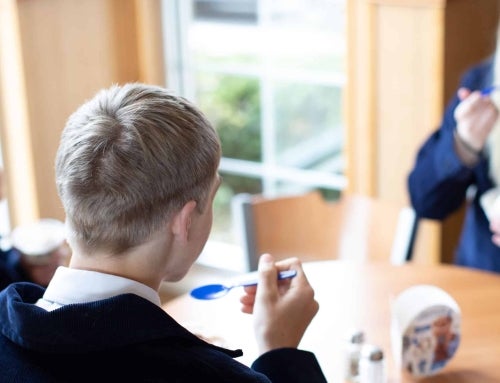Growing up in northern Wisconsin, Kayla Reed enjoyed her family’s cabin on the shore of Metonga Lake.
“My grandfather always took me fishing there,” says 18-year-old Reed, a former president of the Pulaski High School FFA Chapter and a current freshman at the University of Wisconsin-Stevens Point. “I always really admired the environment at the lake, and it’s what sparked my interest in becoming a fisheries biologist.”
When she was in eighth grade, Reed heard that a local fisheries biologist for the Wisconsin Department of Natural Resources was planning to stock Metonga Lake with a fish called muskellunge, also known as muskie. A member of the pike family, the muskie is Wisconsin’s official state fish and a sought-after trophy fish.
“Muskellunge were not a native species to the lake, so I worried about how it would affect the environment,” Reed says. “I decided to write a position paper about why the biologist should not stock that fish in that lake. I was concerned because no one knew what putting a non-native fish into the lake would have done to the environment; it could have eaten all the prey and damaged other fish populations.”
Reed attended a public hearing the biologist held about the controversial issue and presented her paper to him.
“He called me after he received my paper and offered me the opportunity to job shadow him, which I did not expect,” Reed says. “He ended up not stocking the lake with muskie because of the opposition to it. I felt relieved because I knew the lake would stay the way it had been for years, and nothing would be introduced that would harm it.”
At the same time, Reed learned from the biologist and ended up job shadowing him for an entire year. He became one of her mentors.
“He helped me understand more about the data and research, and he even helped me understand that some parts of my argument were incorrect,” Reed says. “We became good friends; I’m still in contact with him to this day. He opened my eyes to how fisheries biology works from the biologist’s perspective.”
Many people have asked Reed how she summoned the courage to challenge a professional biologist’s opinion when she was only in the eighth grade.
“A lot of it comes from a passion I didn’t even realize was inside me about protecting that lake I grew up around. Something inside me awakened,” she says. “I became a person you did not want to go up against on that issue.”
Reed’s advice to young FFA members is to know what you believe in and stand up for it, no matter how old you are.
“Even if someone is older or more educated than you, getting your opinion out there allows them to see your perspective,” she says. “It might be scary, but you never know what good may come of it.”
Reed plans to pursue a career as a fisheries biologist and is still an avid fishing enthusiast. She especially enjoys catching yellow perch and northern pike “because they put up the most fight, and it’s exciting to see how long they are.”
Thanks to her FFA connections and job-shadowing experiences, Reed gained an internship in 2019 and 2020 at the University of Wisconsin-Green Bay’s Aquatic Ecology and Fisheries Laboratory. During summer 2020, Reed was also an American Fisheries Society Hutton scholar.












